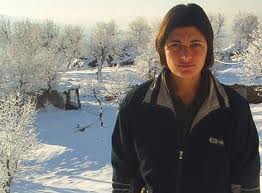The Islamic Republic of Iran has for many years tried to overcome the dynamic of society by instilling fears in the hearts and minds of the people. The expression of opinions, beliefs and ideology is regarded as blasphemy or “enmity with God” whose penalty has been execution or long-term imprisonment.
The prison is one of those institutions the Iranian regime has availed of to compel the people into admitting of the current situation. As the result of its fundamental policies and intolerance of dissenting voices, prisons have become the center of intellectuals, journalists, political and civil activists. Political prisoners are constantly subjected to physical and psychological tortures while their fundamental rights have systematically been violated. Worst of all, the policy of “surrender or die” has been applied on the political prisoners.
What is astonishing is the fact that the Iranian regime denies having political prisoners, reducing them to the “enemies of God”. What it implies is the fact that the state regards itself as the “God on the earth”, for no one could be an “enemy of God”, but the dissent to the Islamic rule.
Zeyneb Celaliyan a Kurdish female activist is one of the political figures who have been held in prisons and subjected to atrocious acts of systematic tortures and maltreatments.
Ms Celaliyan was born in 1981 in Dim Qeshlaq, a village around the city of Mako in East Kurdistan. At her earlier ages she became aware of the patriarchal and anti-women character of the Iranian society which she never accepted. She began her civil and social works when she was 19 years old hoping to find a solution to the problems women had suffered from.
Deeply understanding and feeling the hardships of women in the patriarchal society, she devoted her life to make possible the changes she was hoping for. Nevertheless, her intensive civil and social activism brought her to the attention of the Iranian authorities.
Consequently she was arrested in 2008 during activities in the province of Kirmashan and ended up under huge amounts of fabrication compiled by the Iranian authorities against her to justify her arbitrary arrest, i.e., she was accused of carrying arm, undertaking military activities against the state.
Ultimately she was sentenced to death by Kirmashan Revolution Court, on the charge of “enmity with God”. She was tried in a “show trial”, lasting only for few minutes, without any legal representation or the presence of lawyer. Notwithstanding, she did not carry arm at any time and her entire activities in East Kurdistan were peaceful working at the social and cultural domains.
After arrest Celaliyan was thrown into a solitary confinement in the Intelligence Service’s detention for duration of four months. During this time she was under physical and psychological tortures to confess the crimes she had not committed. She was also forced to make televised confession, but she never gave in.
During the times she spent in solitary confinement, many believed that she could be executed at any time. In 2009 she staged a hunger strike following which her health condition deteriorated and then returned to the public ward of Kirmashan prison.
In March 2010 she was transferred to the Evin Prison, ward 209, where she was kept under sustained pressure from the interrogators to make a televised confession of what she had not done. The pressures were intensified after the execution of five political activists, four of them Kurd, on 9 May 2010. “I am ready to die… I am not scared of execution,” said Celaliyan in response.
As a corollary of persistent campaigns such as “No to Execution and Stoning”, her death sentence was commuted to life-term. But this does not mean that she is safe now. She may be subjected to a gradual death making her more suffer than the actual act of execution. Denying her medical care despite deteriorated and ill health could only substantiate this possibility.
Her eye sighs are becoming weak to the point that she might even lose her sights. Due to inappropriate prison conditions and improper diet, her stomach and intestines have been infected to the extent she cannot digest. During all these periods, she was treated only once in the medical clinic. She has not received sufficient medical care for her injuries and diseases. She is reported to be at an increasing pain and nothing has been done to quell it.
What is clear is the fact that every prisoner of conscious as other human beings has the rights and entitlements including the rights to family visit, medical care and healthy foods etc that Ms Celaliyan has been denied.
